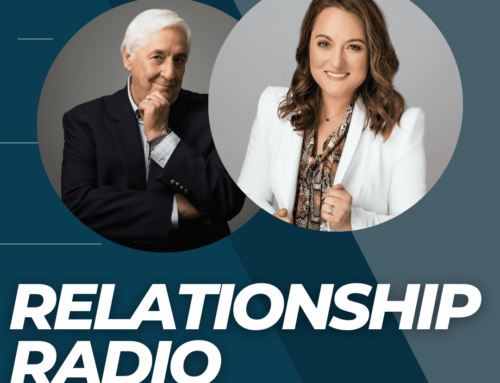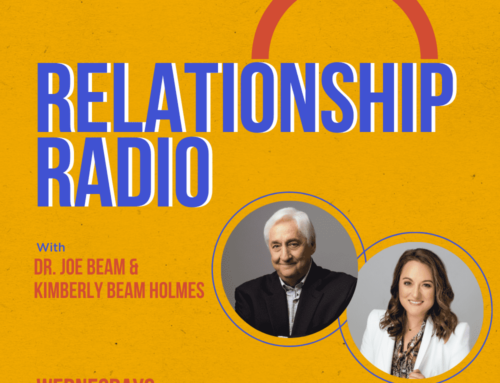Is surviving infidelity in your marriage possible? Limerent affairs create chemical changes in your brain, much like an addiction that tends to wear off over time. No matter how long you strayed from your marriage, there is a chance you can repair it. But now that you’ve decided to put your marriage back together, what are the steps that you need to take? That’s what we’ll be discussing in today’s episode of Relationship Radio.
When Surviving Infidelity, Honesty Is The Best Policy
If you’ve somehow successfully hidden your affair from your spouse, now is the time to come clean. While it may hurt your spouse to hear that you’ve cheated on them, it will be much worse if they find out from someone else. The truth won’t stay hidden forever. There’s always the possibility that your affair partner is upset when you end things and they decide to tell your spouse. So, it’s best they hear it from you first.
Now that your spouse knows about the affair, how do you fix your marriage? First, the decision to save or end your marriage lies in your spouse’s hands. You might be willing to fix things now that you realize what you’ve been doing, but that doesn’t mean that your spouse does. Being sorry doesn’t excuse your actions or repair the hurt they’re now feeling. If they decide the marriage is worth saving, it will be a slow process.
People Heal At Different Rates
A crucial part of starting the healing process and surviving infidelity is to take responsibility for your actions. When you’re telling your spouse about the affair, be sure that you’re not assigning blame to anyone but yourself. While you did have a partner in your infidelity, you still made the choice to pursue the relationship. Putting the blame on others will delay the healing process in your mind and signal to your spouse that you’re not ready to begin repairing your relationship.
Be sure that you apologize. As simple as that sounds, saying you’re sorry and meaning it can go a long way, but don’t repeatedly say you’re sorry. Doing so over a long period of time can program both of you to think that you’re no good.
Both you and your spouse will likely experience grief through this process. While it’s understood that your spouse will be upset and in pain from finding out the truth of your infidelity, it’s also entirely possible for you to feel grief over the loss of your affair partner. Even if you’re not feeling grief, you could feel guilt, anger, or many other emotions. Empathy from both parties is crucial here.
Understand that people heal at different rates. There is no timeline on how quickly you can work through this process to build a stronger marriage. It’s possible that the person who had the affair is further along in the healing process because they’ve had time to think about it before telling their spouse. Some days there will be setbacks, while others might feel like you’re beginning to heal. Don’t be discouraged by the setbacks.
Understand Their Pain And Don’t Push For Healing
Part of understanding that people heal differently is understanding not to push your spouse. Remember, the entire reconciliation process is in your spouse’s hands, not yours. Putting too much pressure on them and rushing them to heal will make them feel bullied and likely backfire on you. Being sorry for what you’ve done doesn’t mean that they automatically have to forgive you.
Understand the pain that your spouse is going through. First, they have to learn to trust you again. It’s entirely possible that they’re not even sure they can ever forgive you. Fixing your marriage isn’t a situation where you can turn on your charm and use your powers of persuasion to fix it. You won’t be able to convince them that you’re committed to your marriage through words alone. The only way they will heal is for you to do the things you need to help rebuild the marriage with honesty, being present, asking for forgiveness, and consistency.
Answer Questions Honestly But Use Caution
Your spouse will have many questions throughout this process of surviving infidelity. The one that most often needs to be answered is why. Why did you cheat on me? Why did you choose to get involved with this other person? That isn’t always the easiest question to answer because sometimes you might not know why you cheated yourself. Don’t lie or try to make excuses, though. We often hear from spouses that the worst pain comes from the fact that their partner lied to them. So if you genuinely don’t know why, then say that.
Often your spouse will have other more intimate questions that they want answered. But unfortunately, human beings are visual creatures, and any answer you give to those kinds of questions will likely only make it worse for your spouse. The images they conjure in their head will be worse than anything you actually did and stick with them even after they think they’ve healed.
The trick to use here is to answer truthfully but not hurtfully. It’s ok to ask permission not to reveal too many details that might hurt your spouse further. For example, if they ask you if you kissed your affair partner, you can simply respond with, I’d rather not relive those memories. I’m sorry that I cheated and I’ve hurt you, and I’d like us to move on and repair our marriage together. If they continue to press for details, give brief yes or no answers and ask their permission to avoid any details that might trigger visuals.
To Build Trust, You Need Accountability
As you begin to talk and repair your marriage, be sure that you’re talking in terms of the PIES. What do we mean by PIES? We use this term to define your relationship’s physical, intellectual, emotional, and spiritual needs. Use this to tell your partner how you’re feeling and how what they are doing is making you feel. For example, when you said to me that you’d had an affair, this is how it made me feel physically, how it affected me intellectually and emotionally, and what I’m feeling spiritually.
When surviving infidelity, the only way to rebuild trust in the marriage is to set boundaries. We use two acronyms when working with clients, STOPs and COREs. STOP stands for Safeguards That Offer Protection. These are the boundaries you set for rebuilding the marriage, and if any of them are broken, you stop and reassess the process. C.O.R.E. stands for Continuing Our Relationship Essentials. These are things you decide have to happen for the marriage to continue to heal, such as going to counseling or finding other sources of help.
We Can Help
Marriage Helper is in its 23rd year of helping people reconcile their marriages. We have combined tons of our research with scholarly, peer-reviewed research from around the world to develop a three-day intensive workshop that couples can attend together. And for those three days, we teach an amazing amount of scientifically proven information to help you through the issues in your marriage. We can help both you and your spouse understand the reasoning behind the things you’ve done. We don’t do psychotherapy; it’s just teaching.
We’ve found over the years that most couples that come to our three-day workshop have one spouse who doesn’t want to save the marriage. Yet, over the decades we’ve been doing this, we have found that more than 70% of those marriages make it and last. We offer an in-person class along with an online option.
Contact us to learn more about how we can help your marriage become stronger than you ever thought possible.
For more Marriage Helper content, visit our YouTube Channel.


